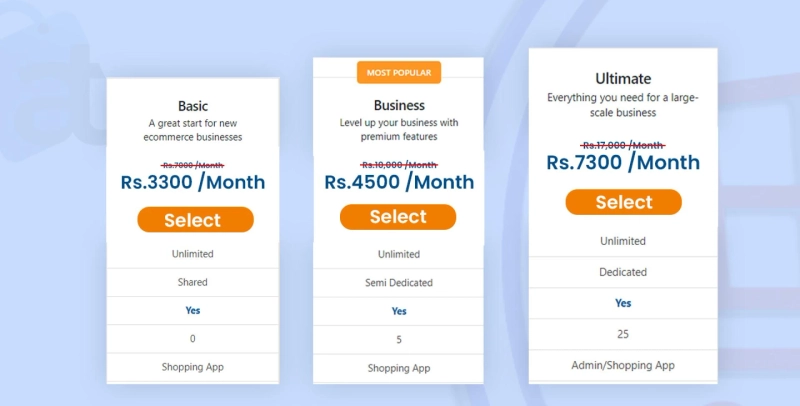In the highly competitive landscape of online retail, pricing plays a critical role in influencing consumer behavior and ultimately driving sales. One powerful approach that businesses can adopt is psychological pricing. This strategy harnesses the principles of perception and consumer psychology to create a favorable perception of value, encourage purchasing decisions, and ultimately increase sales.
In this blog, we will dive into the impact of psychological pricing on sales growth and explore various techniques that businesses can employ to effectively adapt this strategy to their Online Stores, helping them stand out from the competition and drive revenue.
The Psychology Behind Pricing
To truly grasp the effectiveness of psychological pricing, it is crucial to understand the underlying psychological mechanisms at play. Perceived value and pricing perception are fundamental concepts in pricing psychology. Customers often associate higher prices with better quality, making them more likely to perceive a product as valuable and be willing to pay a premium for it.
Additionally, cognitive biases significantly influence how customers perceive prices and make purchasing decisions. The anchoring effect, for example, occurs when individuals rely heavily on the first piece of information they encounter when making a decision. By strategically anchoring prices or using reference points, businesses can shape customers' perceptions of pricing and influence their willingness to pay.
Furthermore, emotions play a substantial role in pricing strategies for Online Stores. Customers' emotional responses can heavily influence their perception of value and their motivation to make a purchase. By understanding and leveraging these psychological factors, businesses can optimize their pricing strategies to align with consumers' cognitive and emotional processes, leading to increased sales and customer satisfaction.
Popular Psychological Pricing Techniques
Several psychological pricing techniques have proven effective in capturing consumer attention and driving sales. One commonly used technique is charm pricing, which involves pricing products with numbers ending in "9" or "99." This approach capitalizes on customers' tendency to perceive prices ending in "9" as lower, even if the difference is minimal.
For example, pricing an item at $19.99 instead of $20 can create the perception of a more reasonable price and increase the likelihood of a purchase. Another effective strategy is bundle pricing, where businesses offer products or services as a package deal at a discounted price. This technique creates a sense of added value for customers, as they perceive the bundled offer as more cost-effective compared to purchasing each item individually.
Decoy pricing is another powerful technique that leverages the introduction of a higher-priced option to make other choices appear more attractive and reasonable. By strategically presenting a decoy option, businesses can influence customers' decision-making and steer them towards the desired purchase. Price anchoring is a technique that involves using a higher-priced item as a reference point to make other items seem more affordable.
By introducing a premium product or package, Online Stores can create a perception of value and encourage customers to opt for more reasonably priced alternatives. By employing these popular psychological pricing techniques, businesses can tap into the cognitive biases and emotional responses of their target audience, ultimately increasing sales and revenue.
Applying Psychological Pricing in Your Business
To effectively apply psychological pricing in your Online Store, it is crucial to have a deep understanding of your target audience and their price sensitivity. Conducting market research, customer surveys, and analyzing purchasing patterns can provide valuable insights into consumers' preferences and willingness to pay.
Furthermore, A/B testing and pricing experiments can help identify the most effective pricing strategies for your products or services. By comparing different pricing approaches and analyzing the resulting sales data, you can gather valuable information on what resonates best with your target audience.
Additionally, product positioning and marketing play vital roles in the successful application of psychological pricing techniques. By aligning your pricing strategy with your overall brand image, value proposition, and target market, you can enhance the effectiveness of psychological pricing in driving sales and maximizing profitability for your Online Store.
It is crucial to strike a balance between pricing strategies that capture customers' attention and convey value while also maintaining profitability for your business.
Potential Challenges and Considerations
While psychological pricing can be a powerful tool for increasing sales, it is important to be mindful of potential challenges and ethical considerations. Pricing manipulation should be approached with caution to ensure transparency and maintain trust with customers. While strategic pricing techniques can create a perception of value, it is crucial to avoid misleading or deceptive practices.
Pricing should accurately reflect the quality and value of the product or service being offered. It is also important to carefully monitor competitors' pricing strategies and adjust your own pricing accordingly to remain competitive in the market. Failing to do so may result in losing customers to rivals offering more attractive pricing.
Moreover, finding the right balance between profitability and customer perception is essential. While psychological pricing can drive sales, it is crucial to ensure that your pricing strategy aligns with your business goals and does not compromise your bottom line. Regular analysis of pricing data, profit margins, and customer feedback can help you fine-tune your strategies and address any potential challenges that may arise.
Conclusion
Psychological pricing techniques can significantly impact online sales. By understanding pricing psychology and the other discussed strategies, you can leverage psychological pricing to drive customer behavior and boost sales.
However, it's crucial to navigate this strategy ethically and consider potential challenges. By incorporating psychological pricing effectively, you can enhance competitiveness, optimize revenue, and build strong customer relationships.
Regular analysis and adaptation of pricing strategies will ensure continued success in the ever-evolving e-commerce landscape. With a well-executed psychological pricing strategy, you can attract customers, increase conversions, and achieve business growth.
If you are looking for an exceptional solution to build your Online Store, look no further than Atcommerce. This innovative platform is designed to empower businesses like yours with the tools and features needed to create a captivating and high-performing Online Store, effortlessly driving sales and maximizing customer engagement.



